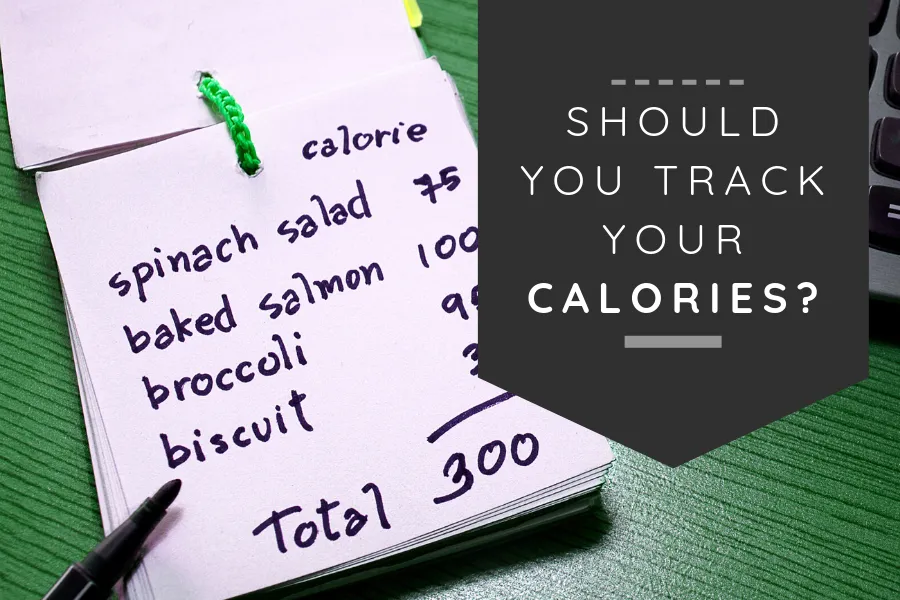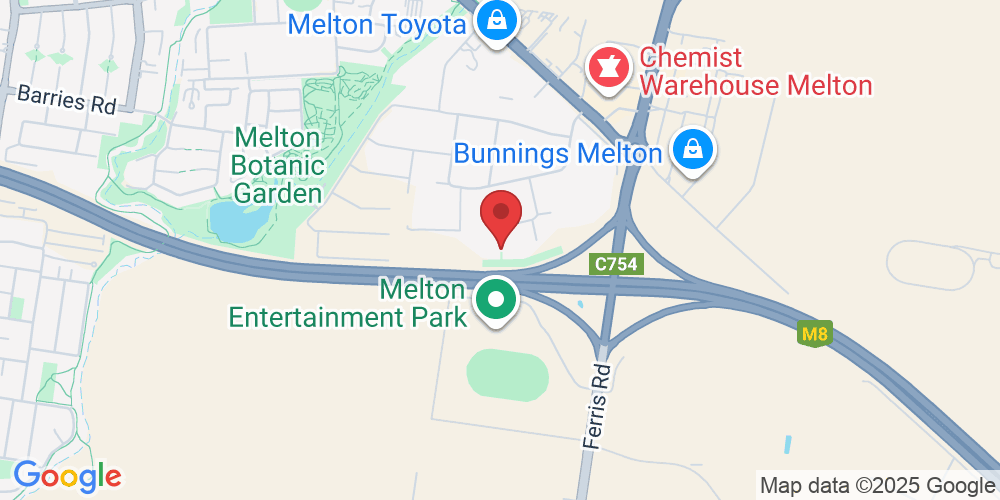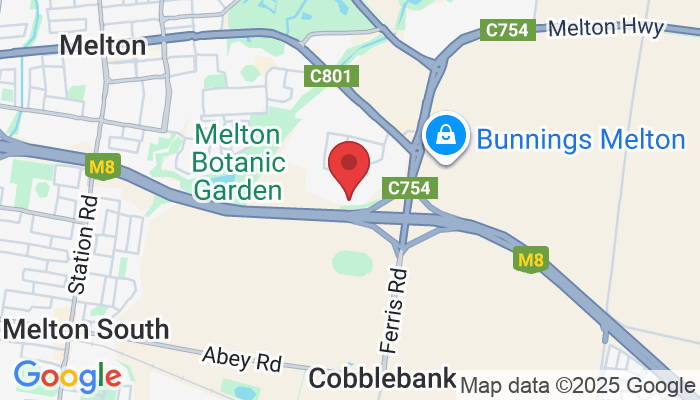Articles
Discover the latest fitness tips, workout advice, and updates from FIT40 Melton. Our blog is designed to keep you informed and inspired on your fitness journey.

Can you ruin your metabolism?
“Your metabolism is going to slow down a bit when you lose weight regardless of how you do it. The key is to do it sustainably and do it the right way.”
One of the many reasons I’ve heard people attribute their lack of weight loss to is having a slow metabolism. Or having a ‘damaged’ metabolism.
But what is a damaged metabolism? Is it even a thing?
First of all, your metabolism is how your body breaks down the food you eat and converts it to energy. That’s it.
When we think of how many calories we burn and how ‘fast’ or ‘slow’ someone’s metabolism is, we’re talking more about how many calories they burn on a daily basis.
Someone that has a ‘fast’ metabolism might actually just move more than the person that has a ‘slow’ metabolism. Or they might be bigger than them so naturally their body burns more.
What we’re talking about here is TDEE – Total Daily Energy Expenditure. Essentially, how many calories do you burn per day?
There are 4 components that make up your daily energy expenditure:

Basal Metabolic Rate (BMR): This is how many calories you burn at rest. It’s determined on an individual level by your age, sex, height, weight, muscle mass.
This is what we would consider to be your metabolism in this scenario. Yes, it can be higher or lower at different points (more on this soon).
Exercise Activity Thermogenesis (EAT): This is how many calories you burn during exercise. This can move up or down regardless of how your body breaks down and digests food.
Non-Exercise Activity Thermogenesis (NEAT): This is how many calories you burn through activity that isn’t dedicated exercise. Walking to work, playing with the kids, shivering, fidgeting.
Thermic Effect of Food (TEF): This is how many calories you burn digesting and breaking down food.
So even though we’ve got those 4 components listed there and your metabolism is how your body utilises the food you feed it – ‘speeding up’ your metabolism is a simple way of saying ‘let’s get your body to burn more calories everyday’.
But what if your metabolism is ‘damaged’?
Damage is a strong word here. Like I mentioned above, your metabolism can move up and down – fast or slow – based on different lifestyle factors.
Take extreme or rapid weight loss, for example.
Something known as adaptive thermogenesis is where you burn less calories due to weight loss. Or to be more accurate, it’s when you burn less than predicted after that weight loss.
It’s not uncommon to burn less calories after losing weight. If you are now a smaller version of yourself it’s understandable that it takes less calories to maintain that smaller version. You weigh less, likely have less muscle and you may even move less now.
Adaptive thermogenesis is when you slow your metabolism down more than predicted. You may have started at 2000cals per day before your weight loss. You lost 20kg and now, instead of burning 1500cals after your weight loss, you only burn 1300cals.

This can be detrimental for long-term weight loss solutions as it means you have to eat less to maintain your new weight.
It’s also important to note that while this may be a small contributing factor to stalled weight loss or a slower metabolism, there are other, more clear reasons such as a lack of consistency or adherence the longer your diet goes on.
Some people may relax as they lose weight and fall back into bad habits, or they may stop exercising as hard as they were to lose the weight initially.
The biggest takeaway here is that you should use a slower, more sustainable method for weight loss to ensure the smallest amount of adaptive thermogenesis and to enhance adherence and consistency.
A similar thing can occur when exercising incorrectly or too much. Long hours spent running or doing other long-form cardio sessions means you will eventually adapt and stop burning as many calories.
Take running, for example. It’s a great tool for cardiovascular fitness, but it doesn’t encourage muscle growth – in fact, it actively reverses muscle growth and even promotes muscle breakdown.
Sure, you may lose weight when running a lot, but a significant part of that weight may be muscle. So now your body burns less calories because you have less muscle. You’ve slowed down your metabolism.
Also, if you’re not running, you’re not burning calories.
This means that as soon as you stop running regularly, your daily energy expenditure goes down even further and you put the weight back on.
This can also make it hard to even get started with your weight loss.
If you aren’t obese and you just have a few kilos to lose, where your metabolism is currently sitting is incredibly important.
If you’re maintaining your current weight and shape by only eating 1500cals, you’re not exactly in a strong position to begin cutting your calorie intake.
Sure, you might experience some weight loss by cutting to 1200cals initially – but where do you go from there?
Who wants to be eating less than 1000cals a day?!
You would be much better off slowly building your metabolism over a few months, maybe even a year (yes, health and fitness is a long-term thing) and then cutting back your calories.
If you do it right, you can build your metabolism to the point that you’re eating so much food you want to start cutting it back. How good would that be?
So, how can you do this?

Stay active
If you give your body no reason to burn calories, it won’t. Try to get 10,000 steps per day, park further from your office, go for hikes and daily walks. Just remain active and stay moving.
Don’t cut calories
As mentioned above, when you’re in a calorie deficit and you lose weight, your body starts to slow it’s metabolism down. Try eating at maintenance or even in a slight surplus to get your metabolism firing again.
Build muscle
This is the most important thing you can do for speeding up your metabolism. Building muscle and even just the act of lifting weights to build muscle puts you in a position to become a fat-burning furnace! Muscle is an active tissue. This means it takes calories to maintain and grow – a lot more than fat. So every kilo of muscle you add to your body is adding to your daily calorie expenditure.
Eat protein
If building muscle is the most important thing, eating protein is the 2nd most important. Over my years as a PT and coach, this is by far one of the most common problems I’ve seen – people don’t get enough protein. This will help you to maximise your strength training and build as much muscle as possible (no, you won’t look like The Rock). Aim for 1.5-2g of protein per kg of lean body mass.
Building muscle, eating protein and staying active should pretty much be a staple in your weight loss journey regardless of what stage you’re in – fat loss or speeding up your metabolism.
And all this is not to say that you shouldn’t try to lose weight.
“I’m not gonna lose weight if my metabolism’s gonna slow down. It’s pointless!”
Your metabolism is going to slow down a bit when you lose weight regardless of how you do it. The key is to do it sustainably and do it the right way.
Take it slow.
Don’t cut your calories drastically.
Eat plenty of protein.
Build strength and muscle.
That’s the most sustainable way you can go about it.

Can you ruin your metabolism?
“Your metabolism is going to slow down a bit when you lose weight regardless of how you do it. The key is to do it sustainably and do it the right way.”
One of the many reasons I’ve heard people attribute their lack of weight loss to is having a slow metabolism. Or having a ‘damaged’ metabolism.
But what is a damaged metabolism? Is it even a thing?
First of all, your metabolism is how your body breaks down the food you eat and converts it to energy. That’s it.
When we think of how many calories we burn and how ‘fast’ or ‘slow’ someone’s metabolism is, we’re talking more about how many calories they burn on a daily basis.
Someone that has a ‘fast’ metabolism might actually just move more than the person that has a ‘slow’ metabolism. Or they might be bigger than them so naturally their body burns more.
What we’re talking about here is TDEE – Total Daily Energy Expenditure. Essentially, how many calories do you burn per day?
There are 4 components that make up your daily energy expenditure:

Basal Metabolic Rate (BMR): This is how many calories you burn at rest. It’s determined on an individual level by your age, sex, height, weight, muscle mass.
This is what we would consider to be your metabolism in this scenario. Yes, it can be higher or lower at different points (more on this soon).
Exercise Activity Thermogenesis (EAT): This is how many calories you burn during exercise. This can move up or down regardless of how your body breaks down and digests food.
Non-Exercise Activity Thermogenesis (NEAT): This is how many calories you burn through activity that isn’t dedicated exercise. Walking to work, playing with the kids, shivering, fidgeting.
Thermic Effect of Food (TEF): This is how many calories you burn digesting and breaking down food.
So even though we’ve got those 4 components listed there and your metabolism is how your body utilises the food you feed it – ‘speeding up’ your metabolism is a simple way of saying ‘let’s get your body to burn more calories everyday’.
But what if your metabolism is ‘damaged’?
Damage is a strong word here. Like I mentioned above, your metabolism can move up and down – fast or slow – based on different lifestyle factors.
Take extreme or rapid weight loss, for example.
Something known as adaptive thermogenesis is where you burn less calories due to weight loss. Or to be more accurate, it’s when you burn less than predicted after that weight loss.
It’s not uncommon to burn less calories after losing weight. If you are now a smaller version of yourself it’s understandable that it takes less calories to maintain that smaller version. You weigh less, likely have less muscle and you may even move less now.
Adaptive thermogenesis is when you slow your metabolism down more than predicted. You may have started at 2000cals per day before your weight loss. You lost 20kg and now, instead of burning 1500cals after your weight loss, you only burn 1300cals.

This can be detrimental for long-term weight loss solutions as it means you have to eat less to maintain your new weight.
It’s also important to note that while this may be a small contributing factor to stalled weight loss or a slower metabolism, there are other, more clear reasons such as a lack of consistency or adherence the longer your diet goes on.
Some people may relax as they lose weight and fall back into bad habits, or they may stop exercising as hard as they were to lose the weight initially.
The biggest takeaway here is that you should use a slower, more sustainable method for weight loss to ensure the smallest amount of adaptive thermogenesis and to enhance adherence and consistency.
A similar thing can occur when exercising incorrectly or too much. Long hours spent running or doing other long-form cardio sessions means you will eventually adapt and stop burning as many calories.
Take running, for example. It’s a great tool for cardiovascular fitness, but it doesn’t encourage muscle growth – in fact, it actively reverses muscle growth and even promotes muscle breakdown.
Sure, you may lose weight when running a lot, but a significant part of that weight may be muscle. So now your body burns less calories because you have less muscle. You’ve slowed down your metabolism.
Also, if you’re not running, you’re not burning calories.
This means that as soon as you stop running regularly, your daily energy expenditure goes down even further and you put the weight back on.
This can also make it hard to even get started with your weight loss.
If you aren’t obese and you just have a few kilos to lose, where your metabolism is currently sitting is incredibly important.
If you’re maintaining your current weight and shape by only eating 1500cals, you’re not exactly in a strong position to begin cutting your calorie intake.
Sure, you might experience some weight loss by cutting to 1200cals initially – but where do you go from there?
Who wants to be eating less than 1000cals a day?!
You would be much better off slowly building your metabolism over a few months, maybe even a year (yes, health and fitness is a long-term thing) and then cutting back your calories.
If you do it right, you can build your metabolism to the point that you’re eating so much food you want to start cutting it back. How good would that be?
So, how can you do this?

Stay active
If you give your body no reason to burn calories, it won’t. Try to get 10,000 steps per day, park further from your office, go for hikes and daily walks. Just remain active and stay moving.
Don’t cut calories
As mentioned above, when you’re in a calorie deficit and you lose weight, your body starts to slow it’s metabolism down. Try eating at maintenance or even in a slight surplus to get your metabolism firing again.
Build muscle
This is the most important thing you can do for speeding up your metabolism. Building muscle and even just the act of lifting weights to build muscle puts you in a position to become a fat-burning furnace! Muscle is an active tissue. This means it takes calories to maintain and grow – a lot more than fat. So every kilo of muscle you add to your body is adding to your daily calorie expenditure.
Eat protein
If building muscle is the most important thing, eating protein is the 2nd most important. Over my years as a PT and coach, this is by far one of the most common problems I’ve seen – people don’t get enough protein. This will help you to maximise your strength training and build as much muscle as possible (no, you won’t look like The Rock). Aim for 1.5-2g of protein per kg of lean body mass.
Building muscle, eating protein and staying active should pretty much be a staple in your weight loss journey regardless of what stage you’re in – fat loss or speeding up your metabolism.
And all this is not to say that you shouldn’t try to lose weight.
“I’m not gonna lose weight if my metabolism’s gonna slow down. It’s pointless!”
Your metabolism is going to slow down a bit when you lose weight regardless of how you do it. The key is to do it sustainably and do it the right way.
Take it slow.
Don’t cut your calories drastically.
Eat plenty of protein.
Build strength and muscle.
That’s the most sustainable way you can go about it.
KICKSTART
YOUR
FITNESS
RIGHT NOW!
GET YOUR FREE GUIDE NOW
KICKSTART
YOUR
FITNESS
RIGHT NOW!
GET YOUR FREE GUIDE NOW

© FIT40 Melton 2025
Privacy Policy | Terms of Use






